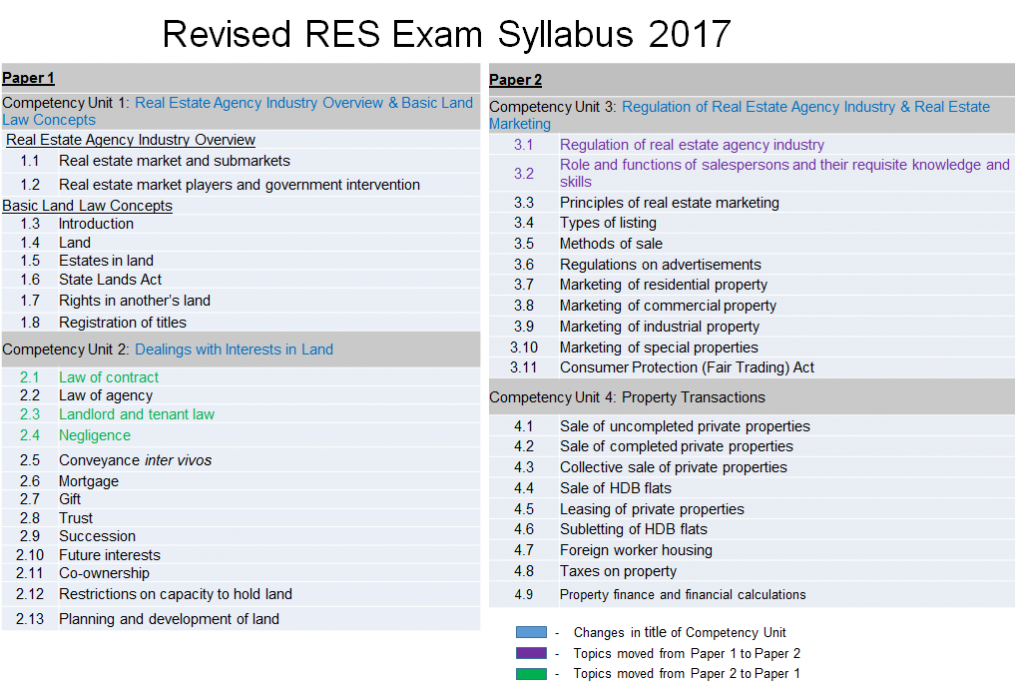
Did you just wake up to realise that there are so much to study yet so little time? I have one piece of good news for you – you are not alone.
The second piece of good news – I have met many people who are like that and either by luck or talent, they have made it into the real industry so don’t lose hope, yet.
Before you proceed, I would like to remind you that there is no shortcut and you will need to put in a lot of hard work to make this RES exam study plan work for you.

One of the very first thing I always encourage all learners to do is to do a quick self assessment to determine your learning pattern.
Why is this important? Imagine you need to stay up the whole night and everyone is telling you to drink coffee to stay awake. However, what works for everyone may not necessary works for you. Perhaps you should be drinking tea or specifically bubble milk tea as I know people who suffers from insomnia from drinking bubble milk tea.
Given you only have limited time to prepare for the exam, you need to find the best way for you to study. By taking notes or reading to yourself? Alone or in a group? If you are able to study 10% faster or retain 10% more, you already stand a higher chance than many others.
Follow this link to and take 10-15 mins to find out your learning style and try out the suggestions at the end of the quiz.
Note: Do not keep selecting “Somewhat like me” for every question else the result may not be as accurate as the results should lean towards one end or the other. It’s like I tell you I’m somewhat introvert and extrovert doesn’t tell you a lot about me, isn’t it?

Now that you are more aware of your learning behaviour, let’s put together a (crash) study plan.
First you need to be really truthful to yourself and determine the total number of revision hours you are ready to commit leading up to the exam day.
Some of you could be holding to a full-time job or perhaps being a full-time parent so everyone is different.
A typical study plan could be 20 hours per week where one is able to commit to 2 hours of daily revision on weekdays and 5 hours on weekends.
Usually as the exam day draws closer, more will go into intensive revision mode like 12 hours or more per day.
Now you need to open up your calendar and add up the hours you have leading up to the exam day and hopefully, you have 100 hours (or even more).
Why the magic number 100? Cos I did an interview of those who passed in a single attempt and almost everyone poured in at least 100 of revision hours.
The next common question – 100 hours is for one paper of both as I understand some of you may have already passed one of the papers. 100 hours is for those who took both papers and passed in a single attempt.
This doesn’t mean you only need to plan for 50 hours if you are only taking one paper. Since you have took the exam before, you should totally understand this is one exam where there’s no way anyone could over prepare so if you can put in 100 hours, don’t stop at 50. If you can put in 200, don’t stop at 100. You should get my point.

There are 41 topics in total – 21 in Paper 1 and 20 in Paper 2. Depending on how many revision hours you have, allocate 60% of your time to go through all your course notes. Let’s say you have 100 hours in total, 60 hours goes to notes revision. Divide that by the number of chapters you need to cover e.g. 41, you have approximately 1.5 hour per topic.
Next, allocate 20% of the time on learning from key authorities websites such as CEA, URA, HDB, CPF, IRAS, BCA, SLA, MAS etc.
The final 20% goes to attempting mock exam questions, attending revision classes etc. When attempting exam questions, it is important to time yourself as the exam test more than just your knowledge but also your speed of reading and answering.
Now you are all set to conquer the RES exam and best of luck!

